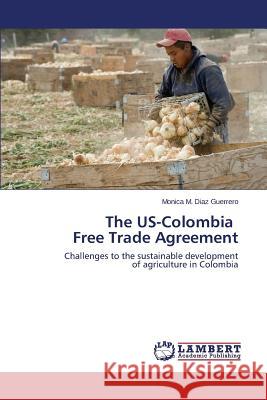The US-Colombia Free Trade Agreement » książka
The US-Colombia Free Trade Agreement
ISBN-13: 9783659607592 / Angielski / Miękka / 2014 / 108 str.
Inspired by the Sustainability Impact Assessment, this book appraises the potential impacts of the US-Colombia Free Trade Agreement (FTA) on agriculture in Colombia in the light of the sustainability pillars: economic, social and environmental. The book explores the causal link between the FTA and certain economic changes in trade and investment flows, levels of output and employment and commodity prices. It indicates that while the changes may prove beneficial to efficient producers in certain exporting sectors, some import-competing sectors are affected adversely, at least in the short run. Consequently, the emergence of winners and losers in the economic context may trigger social impacts associated with the living standards of the population, food security and community life. Additionally, the economic changes may lead to shifts in the use of natural resources, presenting both threats and opportunities for environmental protection. The author concludes that the FTA has a global positive impact on the Colombian economy; but to prove sustainable, a regulatory framework that redistributes the gains for the benefit of the environment and the most vulnerable groups is required.
Inspired by the Sustainability Impact Assessment, this book appraises the potential impacts of the US-Colombia Free Trade Agreement (FTA) on agriculture in Colombia in the light of the sustainability pillars: economic, social and environmental. The book explores the causal link between the FTA and certain economic changes in trade and investment flows, levels of output and employment and commodity prices. It indicates that while the changes may prove beneficial to efficient producers in certain exporting sectors, some import-competing sectors are affected adversely, at least in the short run. Consequently, the emergence of winners and losers in the economic context may trigger social impacts associated with the living standards of the population, food security and community life. Additionally, the economic changes may lead to shifts in the use of natural resources, presenting both threats and opportunities for environmental protection. The author concludes that the FTA has a global positive impact on the Colombian economy; but to prove sustainable, a regulatory framework that redistributes the gains for the benefit of the environment and the most vulnerable groups is required.











